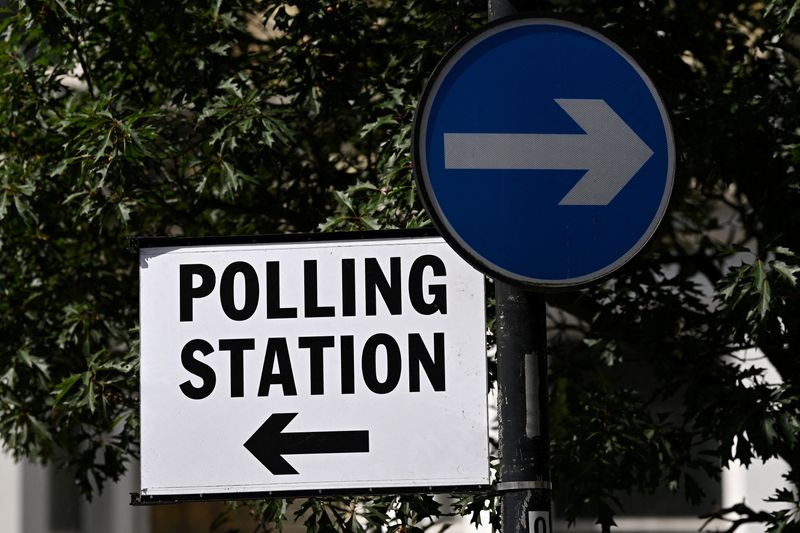By Catarina Demony
LONDON (Reuters) -Britain’s move to lower the voting age to 16 launches the political battle for teenagers’ votes, with campaign groups warning no one should make assumptions about their allegiances and parties must address the issues that affect them.
For decades, election trends and polls suggested younger voters tended to lean more to the left in Britain, but recent evidence from Europe shows young voters, particularly men, backing right-wing parties, including the far-right.
“Don’t take them for granted. Don’t assume that their vote has already been cast before an election,” Dan Lawes, co-CEO of youth-led charity My Life, My Say, said of young voters.
“Young people want to be sold policies. But politicians have to reach them.”
A diverse new generation also wants their specific concerns to be heard and addressed.
According to a tracker by pollsters YouGov, the economy is the most important issue concerning the 18-24 age group, followed by housing and immigration. Data for 16- 18-year-olds was not available.
A poll of 500 16-and 17-year-olds last week found that 33% said they would vote for the centre-left Labour Party, led by Prime Minister Keir Starmer, while 20% would support the right-wing Reform UK Party led by Nigel Farage, which leads polls of the wider population.
“We are going to give this Labour government the shock of their lives. We’re going to get 16- and 17-year-olds to vote for us,” Farage said following the move.
The new cohort would add around 1.6 million potential voters to the roughly 48 million eligible to vote at the 2024 election.
In last year’s European Parliament elections, many young voters shifted toward far-right populist parties that used social media highly effectively to address their concerns.
In Germany, where 16- to 18 year-olds voted for the first time in European elections in 2024, their support helped boost the far-right Alternative for Germany (AfD) party.
In Austria, where 16- and 17-year-olds have been able to vote since 2007, polls showed that most voters under 35 voted for the far-right Freedom Party (FPO) in a 2024 parliamentary election, helping it secure first place.
“It’s quite scary how many… people (my age) are following him (Farage). He’s not my favourite person,” said 17-year-old student Matilda Grace.
However, Anki Deo, from campaign group Hope Not Hate, said follows on social media did not directly lead to votes.
“Many young people are mistrustful of the political system and politicians – it’s going to take a lot more than funny TikToks for any political party to win them over,” she said.
“Reform UK can ramp up their social media efforts, but their policy platform is still far out of line with the attitudes of the majority of young people.”
BOOSTING TRUST
Labour pitched the reform as a way to boost participation and trust after the lowest turnout at the 2024 national election since 2001, hoping to encourage a lifelong habit of voting.
Britain’s democratic system has endured a turbulent decade, marked by the divisive Brexit vote and the political upheaval that followed, including an unprecedented turnover of prime ministers and ministers.
Some critics say 16- and 17-year-olds lack the maturity to vote, and the main opposition Conservative Party called the plan inconsistent, noting the new cohort still can’t buy a lottery ticket, drink alcohol, marry, or join the military.
Younger voters have reacted to the announcement with excitement, but also with some caution.
“Young people can be very impressionable. Some people obviously can make their own decisions and they know what propaganda is, but I think education is the most important thing,” said Ana Fonseca, a 17-year-old student, who called for mandatory lessons on politics and democracy.
Rita Patel, vice chair of Operation Black Vote, which advocates for greater political representation, said the reform needed to lead to meaningful democratic participation for groups like young Black voters, who face distinct challenges and want issues like racism tackled.
“Young Black people are politicised from birth because they have no choice in this world and in this country to navigate that system that is often hostile to their needs,” Patel said.
(Reporting by Catarina Demony and Marissa Davison, additional reporting by Dave Graham and Francois Murphy, writing by William James, edited by Kate Holton and Alexandra Hudson)

